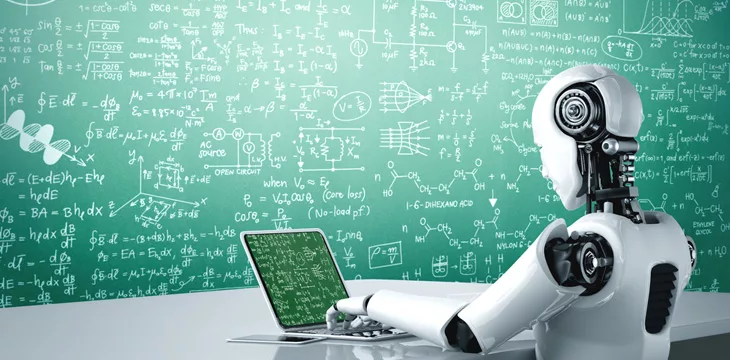|
Getting your Trinity Audio player ready...
|
Artificial intelligence (AI) is finding utility in diverse sectors of the global economy, with education receiving its fair share of innovation driven by new large language models (LLMs).
AI in learning institutions significantly benefits tutors and students, improving traditional teaching methods. A report by IEEE Spectrum pointed to an increasing focus on adaptive learning, leaning on data analytics and AI for tailor-made lesson plans.
The report cited the deployment of chatbots in classrooms as a learning aid for students who can adapt to the distinct paces of each student in a classroom. Currently, Khanmigo, Khan’s AI chatbot, has seen action in classrooms with positive feedback, while Speechify’s text-to-speech model has earned praises for assisting learners with dyslexia.
Language learning platform Duolingo has since integrated ChatGPT-4 into offering interactive lessons to students designed to mirror real-world conversation. Besides focusing on learners, technology firms are rolling out solutions for teachers to improve processes with Gradescope’s AI-based grading tool, which offers an accurate and uniform grading system for schools.
“AI might seem intimidating, but if faculty at educational institutions use the technology appropriately, the benefits will allow for a classroom where all children are cognitively stimulated regardless of where they are in their learning journey,” read the report.
The report proceeds to offer suggestions for integrating AI in schools with organized training for teachers given priority. To encourage seamless integration, educational institutions are encouraged to pursue collaborative partnerships with AI developers to roll out robust systems.
For starters, institutions can ease into AI integration through applications in administrative tasks such as class scheduling and attendance tracking before a full-scale introduction in the teaching process.
Japan has taken the lead in integrating AI into its educational institutions, with authorities giving the green light to high schools to allow the introduction of OpenAI’s ChatGPT. Draft regulations guiding AI usage in Japanese schools impose a blanket ban on their use in examinations and prescribe limited use in artistic endeavors like poetry and creative writing.
UN calls for public engagement
Alarmed by the risks associated with integrating AI and other emerging technologies in classrooms, the United Nations Education, Scientific and Cultural Organization (UNESCO) has issued a warning to global regulators.
In a terse statement, UNESCO warned that the unregulated introduction of AI chatbots may affect the well-being of young learners in need of real-life human interaction. The UN agency predicts a rise in plagiarism and AI-based cheating incidents in educational institutions, amplifying its call for public consultation.
“Generative AI can be a tremendous opportunity for human development, but it can also cause harm and prejudice,” said UNESCO. “It cannot be integrated into education without public engagement and the necessary safeguards and regulations from governments.”
In order for artificial intelligence (AI) to work right within the law and thrive in the face of growing challenges, it needs to integrate an enterprise blockchain system that ensures data input quality and ownership—allowing it to keep data safe while also guaranteeing the immutability of data. Check out CoinGeek’s coverage on this emerging tech to learn more why Enterprise blockchain will be the backbone of AI.
Watch: Blockchain & AI unlock possibilities

 07-03-2025
07-03-2025 





